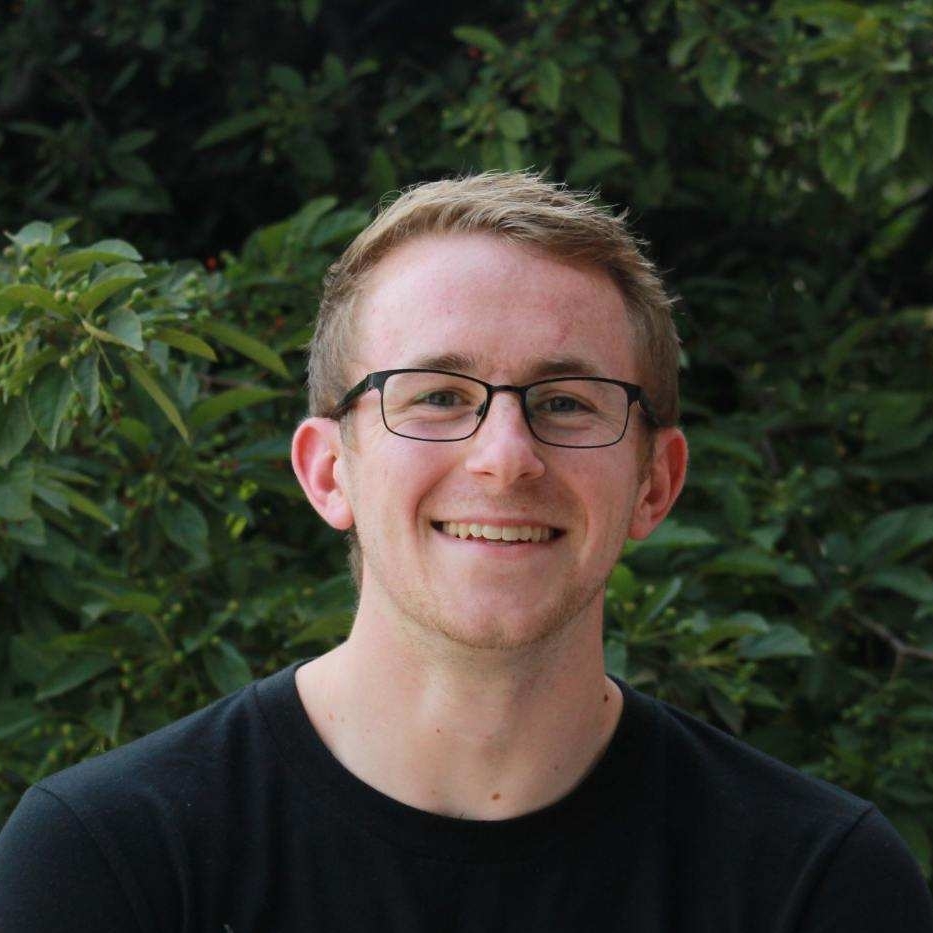
“A high achiever who is unable to internalize and accept their success. They often attribute their accomplishments to luck rather than to ability, and fear that others will eventually unmask them as a fraud.” This is how Kirsten Weir described the imposter phenomenon (often called imposter syndrome) in an American Psychological Association article about graduate students published in November of 2013. Dr. Suzanne Imes and Dr. Pauline Rose Clance first described the imposter phenomenon in a 1978 paper titled “The Imposter Phenomenon in High Achieving Women: Dynamics and Therapeutic Intervention.” The characteristics associated with the imposter phenomenon have been subsequently been observed in many diverse people and environments.
Given the definition, perhaps you shouldn’t be surprised to learn that Caleb Tallquist identifies himself as having experienced the imposter phenomenon, even though he was named this year’s recipient of the Computer Science Senior Prize, awarded to the outstanding graduating senior majoring in Computer Science. Caleb found the challenging topics and concepts found in Computer Science much clearer once he understood he wasn’t the only one in his classes who needed to ask questions to help him understand the material, . To help him overcome imposter syndrome, he learned to take advantage of the fact that Hope professors truly want to help you succeed, and that asking questions allows them to help you understand what you don’t already know.
I started the program my sophomore Fall semester, and for some reason that made me feel like I was really behind or had just fumbled my way through 225 and didn’t actually know what I needed to in order to succeed. Little did I know, most others felt similarly, and I was rather well-prepared for where I needed to be.
As with many other Computer Science students, Caleb came to Hope without any previous background in CS, since his K-12 schools didn’t offer any CS courses. He started as an Engineering student, but quickly realized that hardware was NOT his friend. On the other hand, he found programming Arduinos to be super interesting, and this was the part of the first Engineering course where he did his best work. Caleb took Business Computing during the spring of his first year and found the programming that goes into developing cell formulas to be similarly alluring. At that point he decided to give Computer Science a try. Even though at times he doubted himself through the first couple of courses, he worked hard and excelled. He found software design patterns to be really fascinating as he progressed through the curriculum. He was thrilled to learn that there are so many ways to make applications flexible in the way that best fits the project, such as learning to use composition over inheritance or using patterns such as the Decorator, Strategy, and Factory patterns.
Caleb has a lot of interests outside of Computer Science, including an affinity for sports; in particular, Hope College basketball was an important part of his time at Hope. He was part of the Dew Crew, serving as president during his junior and senior years, and held the distinction of being the only “3 man” who did not reside in Durfee Hall. You might be wondering “what’s a ‘3 man’?” This is a member of the Dew Crew responsible for hanging up a carboard Mountain Dew bottle on the side wall of the DeVos Fieldhouse gymnasium each time one of the Hope sharpshooters connects on a 3 pointer. In addition to his work with the Dew Crew, he was also a part of Nykerk Song Morale for the class of 2020 for two years.
These extracurricular interests meshed well with the liberal arts education Caleb excelled within during his studies at Hope. He believes his liberal arts education made him a well-rounded, successful student and will certainly contribute to his future success. Learning about content areas that don’t revolve around computers and thinking about the world as a whole has enabled him to understand the role of software engineering in a global context, which he thinks will be crucial in his career.
While originally his dream job was to be sabermetrics analyst at ESPN, he currently plans to either be some sort of senior developer or maybe a software or systems architect who gets to deal with code but also design of databases and systems. In the long term, he is considering getting a masters degree in order to be able to teach introductory programming either at a college part-time or be a guest lecturer.
Regardless of where the future takes him, we are proud of the young man Caleb grew into during his time at Hope, and can’t wait to see what the future holds for him. Congratulations, Caleb, on being named the 2020 Computer Science Senior Prize award winner!
About Caleb
Favorite CS Topics
Functional Programming and Software Design Patterns
Best advice for other students
Harvest relationships with faculty. There is so much wisdom to be found in the experiences of faculty. Also, try to find a way to either job shadow or maybe just have coffee with people who do what you want to do.
Breaking Stereotypes
I am a really talkative person, and I really enjoy communicating with others.
I despise sitting at a computer for hours a day and not talking to anybody
On programming for everyone
I think everyone should learn some kind of programming. Whether it be Visual Basic (Excel macros), Python, or HTML and CSS, I think the role computers play in our world makes learning some form of programming very useful. Whether it means being able to help maintain a website, write a script to automate some of your work, have the tools to bring a startup idea to life, or even just have a fun little hobby on the side, programming can be useful to just about anyone who uses a computer.